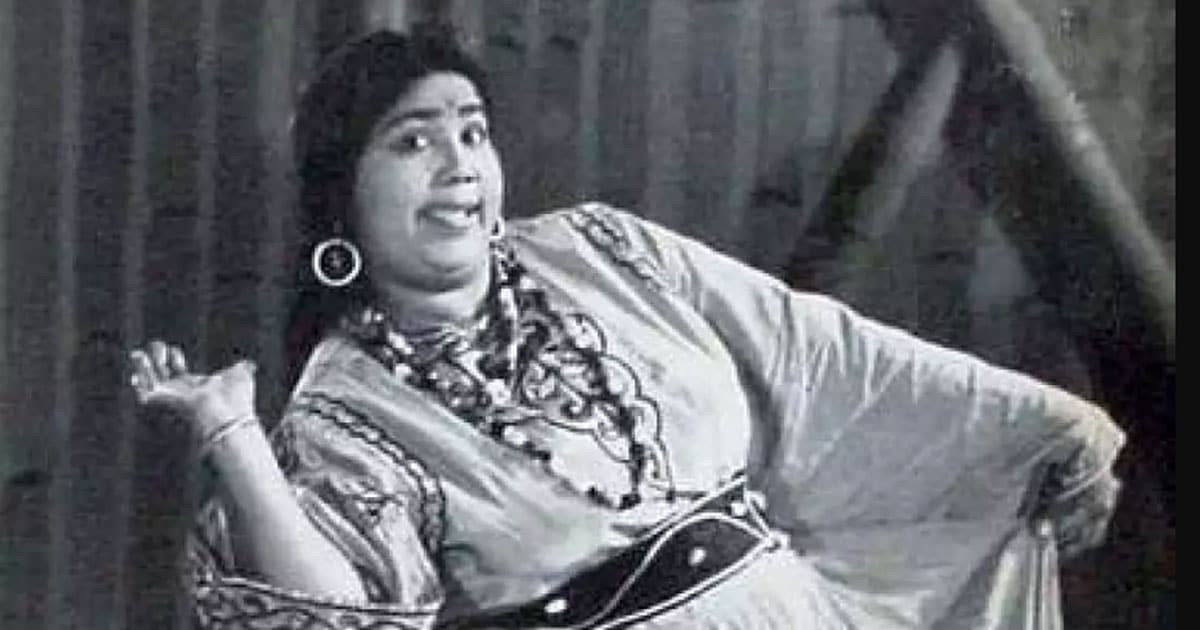Tun Tun was one of the most beloved comedians in Indian cinema. She appeared in over 150 films, and her trademark wide-eyed expressions and physical comedy made her a household name. However, Tun Tun’s life was filled with hardships. She faced poverty and neglect in her final years.
Tun Tun was born Uma Devi Khatri in 1923 in a small village in Uttar Pradesh, India. She was orphaned at a young age when her parents and her elder brother were murdered. In one of her early interviews, she mentioned that she doesn’t recall the murderer as she was very young to remember anything. Her conservative uncle then raised her, who did not favor her education. She was self-educated and could read and write in Hindi.

Tun Tun showed an early talent for singing, and she began her career as a playback singer in the 1940s. She eventually transitioned to acting and debuted in the 1950 film Babul.
Did you know that one of the popular oldies, Afsana Likh Rahi Hoon, was sung by Tun Tun?
She quickly became one of the most popular comedians in Bollywood. Tun Tun was known for her over-the-top expressions and her physical comedy. She often played the role of the hapless but lovable sidekick, and she always managed to bring a smile to the audience’s faces.
Tun Tun’s career peaked in the 1960s and 1970s. She appeared in some of the biggest films of the era, including Aar Paar, Mr. Mrs. 55, and Namak Halal. However, her career began to decline in the 1980s. She was no longer getting the same opportunities and struggling to make ends meet.
In her final years, Tun Tun lived in poverty. Despite all of the hardships she faced, Tun Tun never lost her sense of humor. She continued to laugh and make others laugh, even in the darkest of times. She was a true inspiration, and her legacy will continue to live on.
Shashi Ranjan’s (a renowned filmmaker) interview with Tun Tun is a powerful reminder of many artists’ challenges in their later years. Tun Tun was a beloved comedienne who had given so much to the Indian film industry, but she was ultimately left to fend for herself in her final years.
Ranjan described the conditions in which Tun Tun was living as “bad.” She was living in a chawl in Mumbai, and she was barely scraping together enough money to pay for food and medicine.
Ranjan’s interview with Tun Tun is a moving testament to her resilience and her sense of humor.
Tun Tun’s Legacy
Tun Tun’s legacy is one of resilience and hope. She faced many challenges in her life, but she never gave up. She continued to make people laugh, even when she was struggling herself.
Tun Tun’s death in 2003 was a significant loss for the Indian film industry. She was a true pioneer and paved the way for other female comedians. She will be remembered for her infectious laughter and her ability to make people smile.
The Importance of Remembering Tun Tun
Remembering Tun Tun’s story is crucial because it reminds us of the challenges women face in the entertainment industry. She was a talented actress and comedian but was often overlooked and undervalued. Her story calls for change, reminding us we must do more to support female artists.

